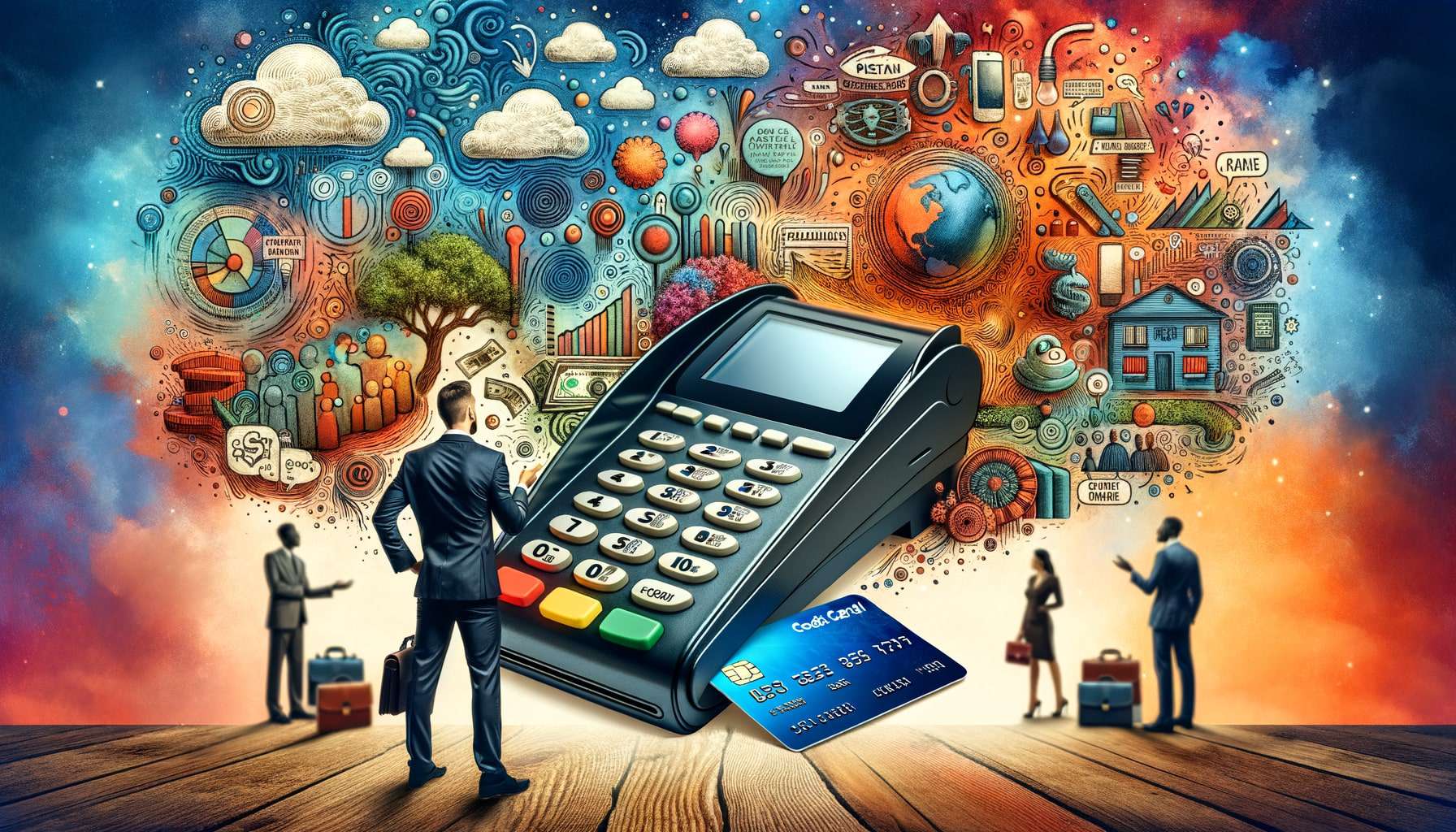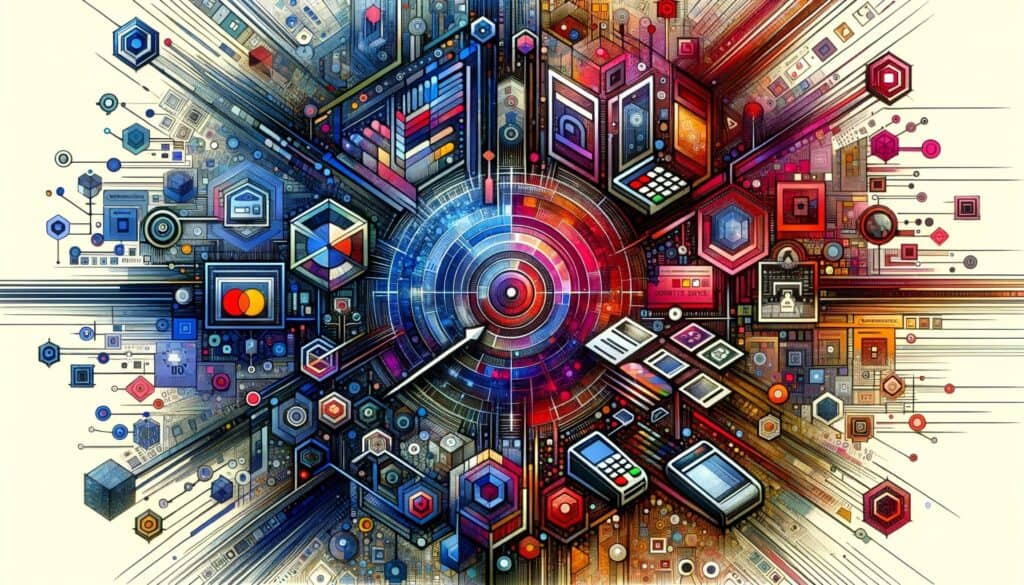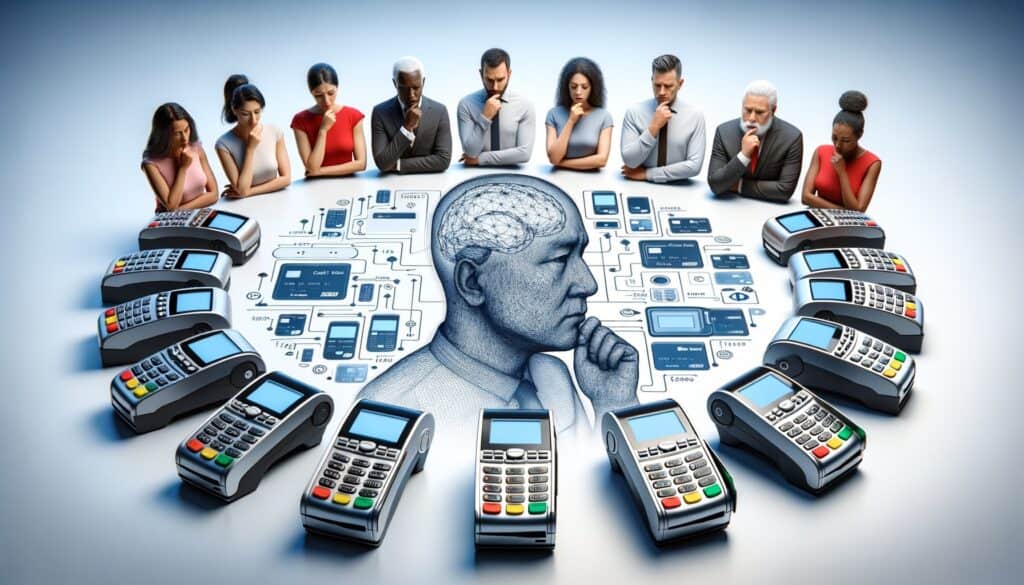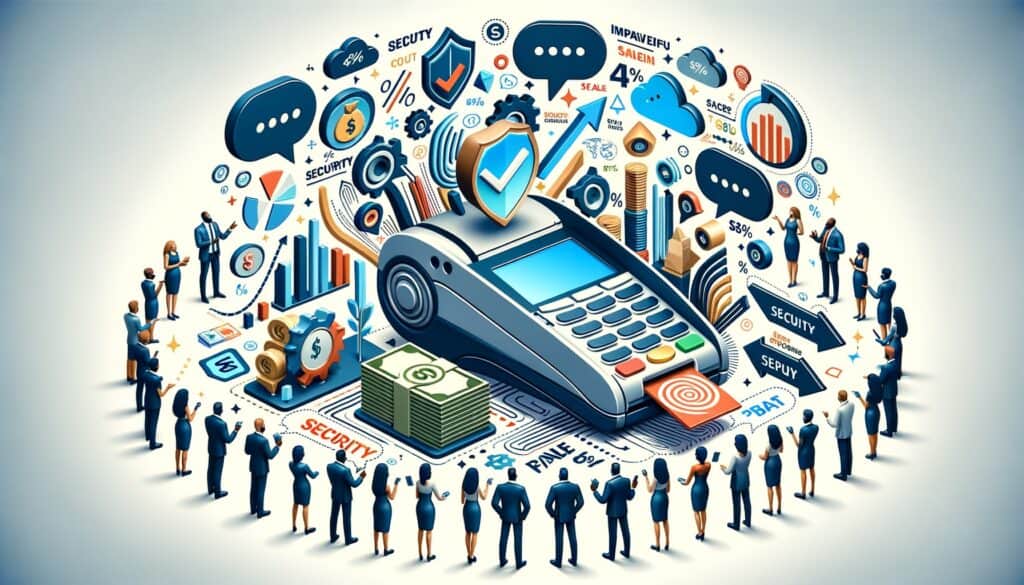
By Carol Peters October 9, 2024
In today’s digital age, credit card machines have become an essential tool for businesses of all sizes. Whether it’s a small local shop or a multinational corporation, accepting credit card payments is crucial for success. As a result, the demand for credit card machines has skyrocketed, creating a lucrative opportunity for individuals interested in selling these devices.
This comprehensive guide will provide you with a detailed roadmap to successfully sell credit card machines and capitalize on this growing market.
Understanding the Importance of Credit Card Machines in Today’s Business Landscape
Before diving into the intricacies of selling credit card machines, it’s crucial to understand why these devices are so vital in today’s business landscape. Credit card machines enable businesses to accept electronic payments, providing convenience to customers and increasing sales potential. In fact, studies have shown that businesses that accept credit cards experience higher average transaction values and increased customer satisfaction.
Furthermore, credit card machines offer a level of security that cash transactions cannot match. With the rise of online fraud and identity theft, customers are increasingly wary of carrying cash. By accepting credit cards, businesses can provide a secure payment option that instills trust in their customers.
Identifying the Target Market for Credit Card Machines

To effectively sell credit card machines, it is crucial to identify the target market. While credit card machines are essential for businesses across various industries, certain sectors have a higher demand for these devices. Restaurants, retail stores, hotels, and service-based businesses such as salons and spas are among the primary target markets for credit card machines.
Restaurants, for example, heavily rely on credit card machines to process payments quickly and efficiently. With the fast-paced nature of the industry, having a reliable credit card machine ensures smooth transactions and enhances customer satisfaction.
Retail stores also benefit greatly from credit card machines, as they enable customers to make purchases conveniently. By accepting credit cards, retailers can attract a larger customer base and increase sales.
Identifying the target market for credit card machines allows salespeople to tailor their sales pitch and marketing strategies accordingly. By understanding the specific needs and pain points of different industries, salespeople can position credit card machines as a solution to their problems.
Choosing the Right Credit Card Machine for Your Customers

When selling credit card machines, it is essential to help customers choose the right device that suits their specific needs. There are various types of credit card machines available in the market, including traditional countertop terminals, wireless terminals, and mobile card readers.
Countertop terminals are ideal for businesses with a fixed location, such as retail stores and restaurants. These devices are connected to a phone line or internet connection and provide a secure and reliable way to process payments.
Wireless terminals, on the other hand, are suitable for businesses that require mobility, such as food trucks or delivery services. These devices use cellular networks to process transactions, allowing businesses to accept payments on the go.
Mobile card readers are compact devices that can be attached to smartphones or tablets, turning them into credit card machines. These devices are perfect for small businesses or individuals who need a portable and cost-effective solution.
When helping customers choose the right credit card machine, it is important to consider factors such as transaction volume, connectivity options, and security features. By understanding the unique requirements of each customer, salespeople can recommend the most suitable device and increase customer satisfaction.
Crafting an Effective Sales Pitch for Credit Card Machines

Crafting an effective sales pitch is crucial for selling credit card machines successfully. A well-crafted pitch can capture the attention of potential customers and convince them of the benefits of investing in a credit card machine.
To create an impactful sales pitch, it is important to highlight the key advantages of credit card machines. These advantages include increased sales, improved customer satisfaction, and enhanced security.
Firstly, credit card machines enable businesses to increase sales by accepting a wider range of payment options. By offering convenience to customers, businesses can attract more customers and generate higher revenue.
Secondly, credit card machines contribute to improved customer satisfaction. With faster and more efficient payment processing, customers experience shorter wait times and a smoother checkout process. This positive experience can lead to increased customer loyalty and positive word-of-mouth referrals.
Lastly, credit card machines provide enhanced security for both businesses and customers. By encrypting sensitive payment information, these devices protect against fraud and reduce the risk of data breaches. This security feature reassures customers that their personal and financial information is safe, further building trust in the business.
When crafting a sales pitch, it is important to tailor the message to the specific needs and pain points of the customer. By understanding their business goals and challenges, salespeople can position credit card machines as a solution that addresses their pain points and helps them achieve their objectives.
Building Relationships with Potential Customers
Building relationships with potential customers is a crucial aspect of selling credit card machines. Establishing trust and rapport with customers can significantly increase the chances of closing a sale and building long-term partnerships.
One effective way to build relationships is by conducting thorough research on potential customers before approaching them. By understanding their business, industry, and pain points, salespeople can demonstrate their knowledge and expertise during conversations. This preparation shows customers that the salesperson is genuinely interested in helping them find the right solution.
Active listening is another essential skill for building relationships. By listening attentively to customers’ needs and concerns, salespeople can tailor their approach and offer personalized solutions. This approach not only demonstrates empathy but also builds trust and credibility.
Additionally, following up with potential customers after initial conversations is crucial. Sending personalized emails or making phone calls to check on their progress and offer further assistance shows dedication and commitment. This follow-up also provides an opportunity to address any additional questions or concerns they may have, ultimately increasing the chances of closing a sale.
Building relationships with potential customers is an ongoing process that requires consistent effort and communication. By nurturing these relationships, salespeople can establish a strong network of loyal customers who are more likely to refer their business to others.
Overcoming Obstacles and Handling Rejections
In the sales process, it is inevitable to face obstacles and handle rejections. However, successful salespeople know how to overcome these challenges and turn them into opportunities.
One common obstacle in selling credit card machines is the resistance to change. Some businesses may be hesitant to invest in new technology or switch from their existing payment systems. In such cases, it is important to highlight the benefits and advantages of credit card machines, such as increased sales and improved customer satisfaction. Providing case studies or testimonials from similar businesses that have successfully implemented credit card machines can also help overcome resistance to change.
Handling rejections gracefully is another essential skill for salespeople. Instead of taking rejections personally, it is important to view them as learning opportunities. By asking for feedback and understanding the reasons behind the rejection, salespeople can identify areas for improvement and refine their sales approach.
Persistence is key when facing obstacles and rejections. By staying positive and maintaining a proactive mindset, salespeople can continue to pursue potential customers and explore alternative solutions. It is important to remember that each rejection brings salespeople one step closer to a successful sale.
Providing Exceptional Customer Service and Support
Providing exceptional customer service and support is crucial for maintaining customer satisfaction and building long-term relationships. After closing a sale, it is important to continue supporting customers and addressing any issues or concerns they may have.
One way to provide exceptional customer service is by offering comprehensive training on how to use the credit card machine. Many businesses may be unfamiliar with the device and require guidance to ensure a smooth transition. By providing hands-on training and clear instructions, salespeople can empower customers to make the most of their investment.
Regular check-ins and proactive communication are also important for maintaining customer satisfaction. By reaching out to customers periodically, salespeople can ensure that the credit card machine is meeting their expectations and address any potential issues before they escalate. This proactive approach demonstrates a commitment to customer success and builds trust.
In addition to proactive communication, prompt and efficient support is essential. Salespeople should provide customers with a dedicated support line or contact person who can assist with any technical or operational issues. Resolving customer concerns in a timely manner not only enhances customer satisfaction but also strengthens the business relationship.
By providing exceptional customer service and support, salespeople can differentiate themselves from competitors and build a reputation for reliability and trustworthiness. Satisfied customers are more likely to become brand advocates and refer their business to others, ultimately contributing to increased sales and profits.
Leveraging Technology and Innovation in Selling Credit Card Machines
In today’s rapidly evolving technological landscape, salespeople must leverage technology and innovation to stay ahead of the competition. By embracing new tools and strategies, salespeople can enhance their sales process and maximize their effectiveness in selling credit card machines.
One way to leverage technology is by utilizing customer relationship management (CRM) software. CRM software allows salespeople to track customer interactions, manage leads, and streamline the sales process. By organizing customer data and automating repetitive tasks, salespeople can focus on building relationships and closing sales.
Another innovative approach is to incorporate digital marketing strategies into the sales process. By creating engaging content, such as blog posts or videos, salespeople can establish themselves as industry experts and attract potential customers. Social media platforms can also be utilized to reach a wider audience and generate leads.
Furthermore, salespeople can leverage technology by offering value-added services alongside credit card machines. For example, integrating loyalty programs or analytics tools into the credit card machine can provide additional benefits to customers. These value-added services not only enhance the customer experience but also differentiate the offering from competitors.
By embracing technology and innovation, salespeople can adapt to the changing needs and preferences of customers. Staying up to date with the latest trends and tools in the industry allows salespeople to position themselves as trusted advisors and provide valuable insights to customers.
Frequently Asked Questions (FAQs)
Q.1: How much does a credit card machine cost?
The cost of a credit card machine varies depending on the type and features. Traditional countertop terminals can range from $200 to $600, while wireless terminals and mobile card readers can cost between $300 and $800. It is important to consider the specific needs of the business when choosing a credit card machine.
Q.2: Are there any ongoing fees associated with credit card machines?
Yes, there are ongoing fees associated with credit card machines. These fees typically include transaction fees, monthly service fees, and interchange fees. It is important to discuss these fees with the customer and provide transparency regarding the costs involved.
Q.3: How long does it take to set up a credit card machine?
The setup time for a credit card machine depends on various factors, such as the type of machine and the complexity of the business’s requirements. In general, the setup process involves connecting the machine to a phone line or internet connection and configuring the necessary settings. This process can typically be completed within a few hours to a few days.
Q.4: What security measures are in place to protect customer data?
Credit card machines employ various security measures to protect customer data. These measures include encryption of sensitive information, compliance with Payment Card Industry Data Security Standard (PCI DSS), and fraud detection systems. It is important to assure customers that their data is secure and explain the security features of the credit card machine.
Q.5: Can credit card machines accept contactless payments and mobile wallets?
Yes, many credit card machines are equipped to accept contactless payments and mobile wallets. These technologies, such as Near Field Communication (NFC) and Apple Pay, allow customers to make payments by simply tapping their card or smartphone on the credit card machine. Offering these payment options can enhance the customer experience and attract tech-savvy customers.
Conclusion
Selling credit card machines requires a comprehensive understanding of their importance in today’s business landscape, identifying the target market, choosing the right device, crafting an effective sales pitch, building relationships, overcoming obstacles, providing exceptional customer service, leveraging technology, and addressing frequently asked questions.
By following the strategies outlined in this guide, salespeople can boost their sales, maximize profits, and establish themselves as trusted advisors in the industry. Remember, selling credit card machines is not just about the transaction, but about providing solutions that help businesses thrive in the digital age.
